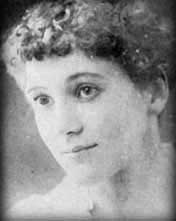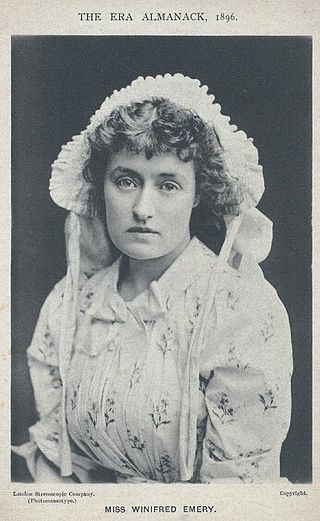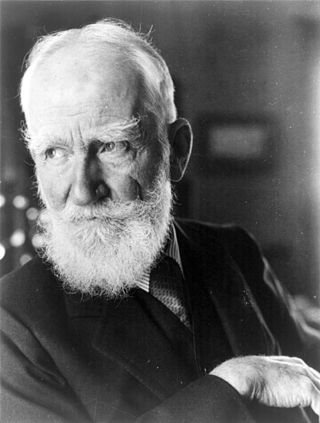
Sir Herbert Beerbohm Tree was an English actor and theatre manager.

John Augustin Daly was one of the most influential men in American theatre during his lifetime. Drama critic, theatre manager, playwright, and adapter, he became the first recognized stage director in America. He exercised fierce and tyrannical control over all aspects of his productions. His rules of conduct for actors and actresses imposed heavy fines for late appearances and forgotten lines and earned him the title "the autocrat of the stage." He formed a permanent company in New York and opened Daly's Theatre in New York in 1879, and a second one in London in 1893.

The Second Mrs. Tanqueray is a problem play by Arthur Wing Pinero. It utilises the "Woman with a past" plot, popular in nineteenth century melodrama. The play was first produced in 1893 by the actor-manager George Alexander and despite causing some shock to his audiences by its scandalous subject it was a box-office success, and was revived in London and New York in many productions during the 20th century.

The Theatre Royal Haymarket is a West End theatre on Haymarket in the City of Westminster which dates back to 1720, making it the third-oldest London playhouse still in use. Samuel Foote acquired the lease in 1747, and in 1766 he gained a royal patent to play legitimate drama in the summer months. The original building was a little further north in the same street. It has been at its current location since 1821, when it was redesigned by John Nash. It is a Grade I listed building, with a seating capacity of 888. The freehold of the theatre is owned by the Crown Estate.

Cyril Francis Maude was an English actor-manager.

Alma Murray (1854–1945) was an English actress.
Norman Frederick Simpson was an English playwright closely associated with the Theatre of the Absurd. To his friends he was known as Wally Simpson, in comic reference to the abdication crisis of 1936.

Florence Beatrice Emery was a British West End leading actress, composer and director. She was also a women's rights activist, journalist, educator, singer, novelist, and leader of the occult order, the Hermetic Order of the Golden Dawn. She was a friend and collaborator of Nobel laureate William Butler Yeats, poet Ezra Pound, playwright Oscar Wilde, artists Aubrey Beardsley and Pamela Colman Smith, Masonic scholar Arthur Edward Waite, theatrical producer Annie Horniman, and many other literati of London's fin de siècle era, and even by their standards she was "the bohemian's bohemian". Though not as well known as some of her contemporaries and successors, Farr was a "first-wave" feminist of the late 19th and early 20th centuries; she publicly advocated for suffrage, workplace equality, and equal protection under the law for women, writing a book and many articles in intellectual journals on the rights of "the new woman".

The Playhouse Theatre is a West End theatre in the City of Westminster, located in Northumberland Avenue, near Trafalgar Square, central London. The Theatre was built by F. H. Fowler and Hill with a seating capacity of 1,200. It was rebuilt in 1907 and still retains its original substage machinery. As of November 2021, the theatre has been refurbished and advertised as the Kit Kat Club while it is hosting a revival of the musical Cabaret.

Samuel Anderson Emery (1814–1881) was an English stage actor, the father of the actress Winifred Emery and grandfather of the actress Margery Maude and the judge John Cyril Maude.

The Hollis Street Theatre (1885–1935) was a theatre in Boston, Massachusetts, that presented dramatic plays, opera, musical concerts, and other entertainments.

Society was an 1865 comedy drama by Thomas William Robertson regarded as a milestone in Victorian drama because of its realism in sets, costume, acting and dialogue. Unusually for that time, Robertson both wrote and directed the play, and his innovative writing and stage direction inspired George Bernard Shaw and W. S. Gilbert.

James Bernard Fagan was an Irish-born actor, theatre manager, producer and playwright active in England. After turning from the law to the stage, Fagan began his acting career, including four years from 1895 to 1899 with Herbert Beerbohm Tree's company at Her Majesty's Theatre. He then began to write plays, returning eventually to acting during World War I. In 1920, he took over London's Court Theatre as a Shakespearean playhouse and soon began to produce plays at other West End theatres. His adaptation of Treasure Island in 1922 was a hit and became an annual Christmas event.

Gertrude Kingston was an actress, an English actor-manager and artist.

Winifred Emery was an English actress and actor-manager of the late 19th and early 20th centuries. She was the wife of the actor Cyril Maude.

The Provincetown Playhouse is a historic theatre at 133 MacDougal Street between West 3rd and 4th streets in the Greenwich Village neighborhood of Manhattan in New York City. It is named for the Provincetown Players, who converted the former stable and wine-bottling plant into a theater in 1918.

Great Catherine: Whom Glory Still Adores is a 1913 one-act play by Irish dramatist George Bernard Shaw. It was written between two of his other 1913 plays, Pygmalion and The Music Cure. It tells the story of a prim British visitor to the court of the sexually uninhibited Catherine the Great of Russia.

Passion, Poison, and Petrifaction is a short play by Bernard Shaw, subtitled The Fatal Gazogene: a Brief Tragedy for Barns and Booths. It is a comic mock-melodrama, written to raise funds for charity. It has been revived occasionally, in tandem with other short works by Shaw or by other playwrights.

Beatrice Ferrar was a British actress who made a speciality of playing in 18th-century dramas.

Helen Rous was a versatile Irish actor who played many times on the London stage. Her parts included supporting roles in works by Oscar Wilde and George Bernard Shaw.



















